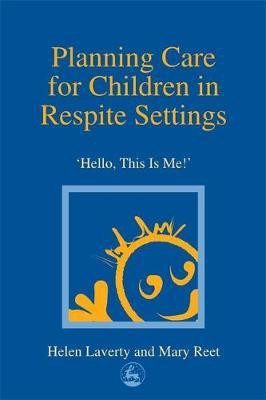Planning Care for Children in Respite Settings(English, Electronic book text, Laverty Helen)
Quick Overview
Product Price Comparison
'This model is presented in an easy-to-read, step-by-step format with assessment/evaluation sheets included. It successfully marries theory with practical administration and is applicable for children of all ages and ability levels. Providers of specialist care for children will find this clearly explained approach to care planning an invaluable tool.'- The Frontline'Respite care has enabled large numbers of disabled children to continue to live at home when their families might otherwise have been unable to cope. However, in this book the authors argue for a radically new approach to the whole service, based on the model developed by Helen Laverty, which she calls 'Hello, This is Me'. Its underlying philosophy is that respite care should no longer simply aim to provide relief for parents or carers, but be an active, planned process designed to help the young person grow towards independence. Instead of focusing on the disability, respite and regular carers together formulate a goal-directed plan of car in which the parents are the directors of care and respite carers the 'enhancers'. The plan must involve the whole family and be frequently reviewed to ensure that it continues to meet the child's developing needs. The process is illustrated with numerous case vignettes and a great deal of practical detail. Although it seems that the context that the authors have in mind is a hospital or children's home with professional carers, many of the ideas in this book would be equally helpful to those offering respite care in a family setting.'- Community CareDeveloped in response to a practice need, this book offers a new approach, centred on the child's abilities, to the planning of respite care provision. With its positive focus on emerging levels of independence in disabled children, the `Hello, this is me' model provides a method of assessing and planning care for children with a variety of needs. The authors emphasise a partnership between families and carers which enables children and parents to make their voices heard when planning respite care, so that each child's unique needs can be met.This model allows carers to calculate the amount of support each child will need, but more importantly, it ensures that respite care is not just a break for families but an enjoyable experience for the child. Providers of specialist care for children will find this innovative, clearly explained approach to care planning invaluable.


